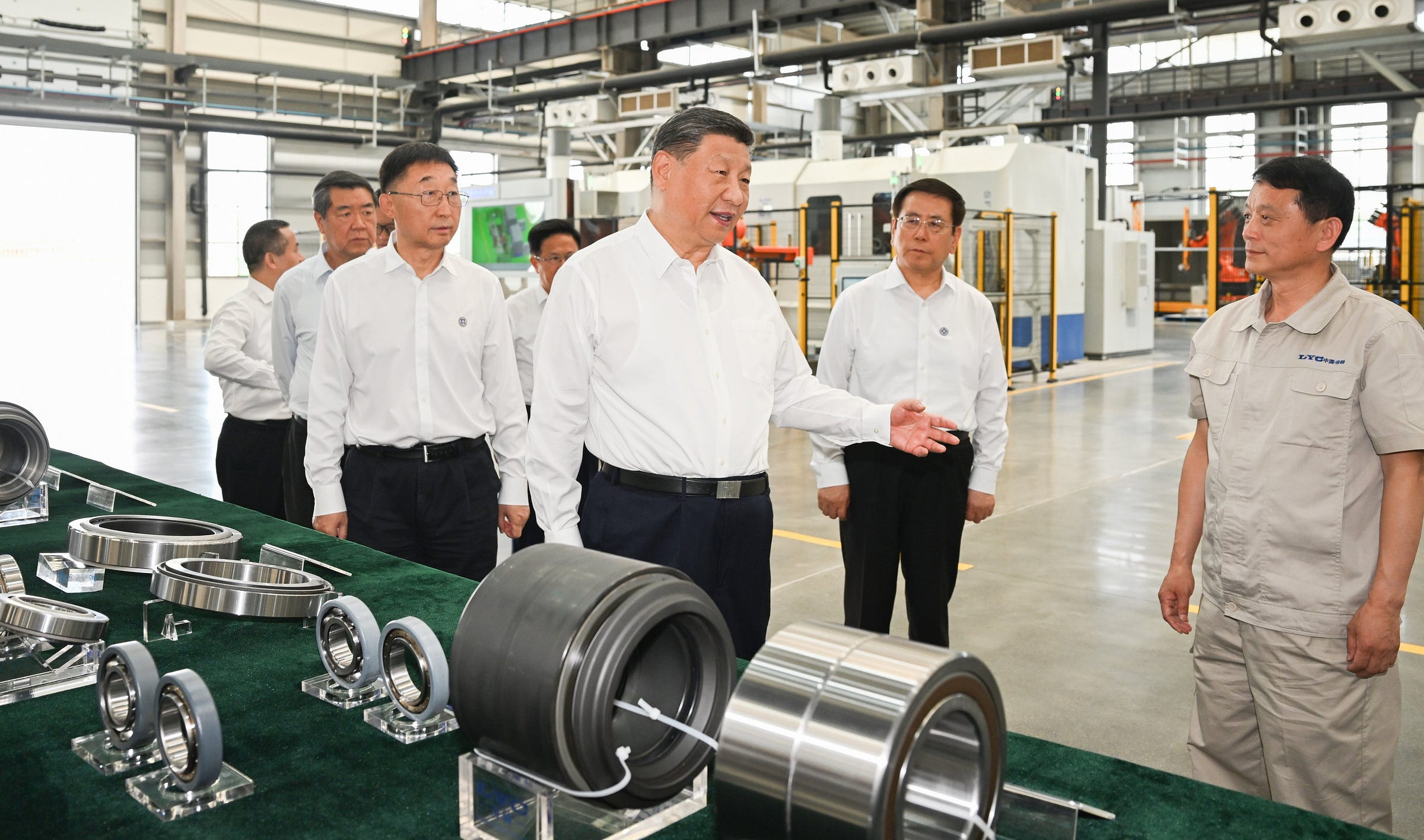Xi Stresses Advanced Manufacturing in Potential Boon for Commercial Space
Space enterprises’ production capacities are growing as Xi calls for more high-quality manufacturing efforts.

On May 19th and 20th, President of the People’s Republic of China, Xi Jinping (习近平), visited the cities of Luoyang (洛阳市) and Zhengzhou (郑州市) in Henan Province (河南) to perform an inspection tour, through which senior communist party leaders learn about the strengths and challenges of China’s enterprises. Both cities are involved in advanced manufacturing clusters, relevant to industries such as aerospace, robotics, and automation.
While on the tour, Xi emphasised the need to accelerate the development of intelligent manufacturing to boost national development via ‘new quality productive forces’1. The call to advance ‘new quality productive forces’ underscores support for innovation-driven sectors, including commercial aerospace, which private space companies are involved with and make use of high-end manufacturing and technological breakthroughs for cost savings. Highlighting this priority, Xi stated:
“China has always adhered to the path of developing the real economy2. From the past reliance on imported matches, soap and iron, to now becoming the world's largest manufacturing country with the most complete industrial categories, we have taken the right path.”
Xi’s emphasis on bolstering the real economy through high-end manufacturing and technological innovation would benefit commercial space efforts, especially in satellite and launch vehicle production.
Although President Xi’s trip to Henan did not mention any specific policy measures to boost intelligent manufacturing efforts, it did coincide with the enactment of the Private Economy Promotion Law (民营经济促进法) on May 20th. The new law provides private enterprises with greater legal protections and allows for more competition against state-owned enterprises, which held an absolute monopoly in sectors like space for decades.
Moreover, during the Two Sessions (两会)3 back in March, various measures were announced to boost the commercial space sector at the national, provincial, and city levels. Those include expanding spaceports, developing industrial clusters, providing funding and tax incentives, starting up innovation initiatives, as well as land use rights for building necessary facilities.
At present, the Academy of Aerospace Liquid Propulsion Technology (航天推进技术研究院) is scaling up production of rocket engines for commercial use, the YF-102 and YF-209. Simultaneously, Capital Aerospace Machinery Co Ltd (首都航天机械有限公司) is increasing its capacity to produce the Long March 3A series of launch vehicles (consisting of the Long March 3A, 3B, and 3C) and YF-75 series of engines, while LandSpace is ramping up Zhuque-2E production, Space Pioneer starts work on Tianlong-3 flight vehicles, and the first major parts of CAS Space’s Kinetica-2 are being made.
Meanwhile, satellite manufacturer MinoSpace (微纳星空) has recently been awarded a contract to develop a ten-satellite remote sensing, six synthetic aperture radar and four optical imaging, constellation for Sichuan Province (四川), having also gained approval for a new spacecraft production site capable of making one hundred and fifty 200 to 500 kilogram satellites annually while expanding an existing facility to produce fifty 1,000 kilograms spacecraft per year, both in Wuxi (無錫市).
Xi Jinping’s inspection tour in Henan, though not policy-heavy in itself, aligns symbolically and contextually with broader national efforts to boost innovation-driven sectors and private enterprise. Combined with the recent enactment of the Private Economy Promotion Law and ongoing support for commercial space, this is indicative of a sustained effort to boost economic growth and national development through 'new quality productive forces’ like commercial space enterprises.
'New quality productive forces’ refers to technology-driven increases in economic productivity via the upgrading of traditional production sectors and actively promoting technological upgrading of economic forces. The term, in official Chinese documents, was coined by Xi Jinping in late-2023 and early-2024.
The real economy is “the part of a country's economy that produces goods and services, rather than the part that consists of financial services such as banks, stock markets, etc.” (Cambridge)
China’s Two Sessions are annual meetings of the National People’s Congress (NPC) and the Chinese People's Political Consultative Conference (CPPCC). The NPC is China’s top legislative body and the CPPCC is the nation’s top political advisory body. Both are key in outlining and deciding nationwide policy.


